My November briefings share news, events and learnings that epitomize the rapidly changing landscape in workplace health promotion. We have catalogued HERO Forum15 for your continued reference and we urge you to visit HERO’s Facebook page to recall the shenanigans of your friends from around the nation. Teaser alert! These briefs also contain a preview of what’s to come for our February Think Tank Meeting in San Diego. Also, read on for news about: EEOC guidance on GINA rules related to family members; a new health initiative designed to clear up confusion about health science; a webinar and blog posts about exemplary leaders, programs and researchers. I also link to a new survey showing how very few employers focus on wellness ROI compared to the broader benefits of providing health and well-being offerings to employees and families.
Continuous Learning and Thinking
What I love most about working for a Think Tank is that I’m paid to think! But thoughts matter little if not put to good use. To that end, the educational literature is well established concerning how you can increase your comprehension and retain more of your learnings from HERO Forum15. It’s simply a function of making time to repeat and reflect on what you learned. We’ve now moved all those great talks from the mobile app to HERO’s Resource Center (for our members only). Re-visit the PowerPoints from sessions that impressed you, and–here’s the truest way to deepen your understanding–teach what you learned to your colleagues.

Joni M. Troester, MBA, CEBS, SPHR, University of Iowa

Rebecca K. Kelly, PhD, RD, The University of Alabama
Scholars who personify the
“Heart of HERO”
Friend HERO! Also, feel free to poke, prod, tweet, snort, whatever…
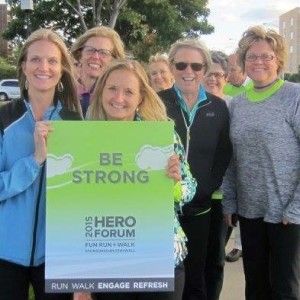
Our memory benefits from making associations between one experience and another so we devotedly chronicled your every move while you learned and played together! Visit HERO’s recently refreshed Facebook Page where we caught you clowning around at StayWell’s Fun Run and Walk along with other wonderfully candid HERO member moments.
Webinar about “REAL” Wellness on November 18th
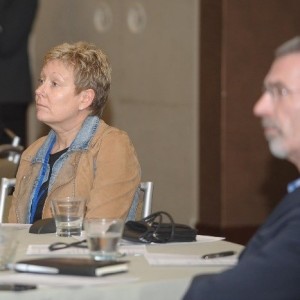
Stephanie Pronk, MA, Senior Vice President & National Health Transformation Leader at Aon Hewitt and Nico Pronk, PhD, Vice President of Health Management at HealthPartners
In my role as an editor for The American Journal of Health Promotion, I get the chance to profile some of the most fascinating people in health promotion. This month’s issue features Dr. Don Ardell, described as one of the “forefathers of wellness.” Join us for the Journal’s webinar (November 18th, 1:00 EST). To balance out Ardell’s tendency to put corporate wellness in a box, I’ve also invited HERO Think Tank member Stephanie Pronk, Senior Vice President and Health Transformation Team Leader at Aon Hewitt. Stephanie not only thinks outside the box, she will also most assuredly challenge anyone who tries to put her into one. As usual, we’ll be looking to our webinar participants to join us in lively discussion and debate.
Hold the Date! “The Future of Work” Think Tank on Feb. 23rd – 24th, 2016 at Hilton San Diego Resort and Spa at Mission Bay.
Our next Think Tank Meeting (members only) will be in the resplendent, laid-back city of San Diego. I’ve long held that incisive thinking and a hurried pace are incompatible. Let’s slow our pace and generate ideas and plans about nothing less than “The Future of Work.” We are intent on reframing our usual narrative about how health affects work. Instead, we’re planning a disciplined group inquiry into how work and the workplace affect health. As just one recent example, consider this sobering article on the connection between work practices and life span in this month’s Health Affairs. A reframing of February’s Fahrenheit is also a welcome thought for those of us up north!
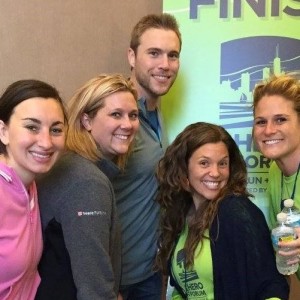
Check out HERO’s Facebook page to view 2015 Forum photos
A Voluntariness Standard Needed for Employee Wellness … and Families!
Following the April 20, 2015 issuance of the Equal Employment Opportunity Commission (EEOC) proposed amendments to the ADA, HERO has been coordinating a consensus development process to find common ground among a diverse group of health promotion experts from business, academia, professional societies and wellness program providers. Achieving the right balance between individual accountability and corporate responsibilities related to fairness and privacy is a penultimate challenge for the health promotion field. Stay tuned for our committee’s report that explains how and why EEOC guidance related to discrimination needs to be consistent, or at least congruent, with the HIPAA protections as ratified by the ACA wellness provisions.
One example our committee has been toiling to reconcile is the difference between EEOC proposed regulations and ACA rules related to incentive limits for employees-only coverage versus coverage for families as well. Depending on your perspective, our job just got easier or harder given this month’s release of EEOC’s “Proposed Rule to Amend Title II of GINA.”
Employers who have been deciding how to apportion incentives between employees and families would do well to have their legal counsel anticipate where this new guidance supports and/or complicates engaging families in wellness.
The Dow Health Strategy
The “Dow Health Strategy” was established on a corporate level over 10 years ago and builds on a comprehensive business case focused in four key areas:
- Prevention
- Quality and effectiveness of care
- Health system improvement
- Advocacy
We interviewed HERO member Cathy Baase, M.D., Chief Health Officer with The Dow Chemical Company, to learn about what was involved in building their comprehensive strategy. Dr. Baase drives health and wellness efforts for Dow’s 53,000 employees, with direct responsibilities for all occupational health, epidemiology and health promotion staff and programs in all global locations. Read the full profile.
Truth, Confusion and Health Promotion
Those of us who have worked in wellness for years have heard the following three sentences often, but which of the three are true? First, “The science related to prevention, and especially about healthy eating, keeps changing!” Second, “There is constant and growing disagreement between health experts,” and third, “Average people are frustrated and simply throwing up their hands.” According to Dr. David Katz, an astoundingly fecund expert that I follow enthusiastically, only the last sentence is true. Based on that idea, he recently launched “The True Health Initiative.” HERO and yours truly are among the more than 250 organizations and health and medical experts who want frustrated people to know that what scientists agree on is overwhelmingly consistent and should easily surmount the doubt that health charlatans prey on to advance their new, unproven ideas. As another example of a leader systematically proffering solutions to systemic challenges, read HERO member Nico Pronk’s recent co-authored article from Health Affairs entitled: “An Integrated Framework for the Prevention and Treatment of Obesity.”
Healthy Criticism Blog Post
Also in this month’s The Art of Health Promotion, I titled the issue as the “Contrarians Issue” because I featured leaders such as Senator Edward Kennedy, Surgeon General Luther Terry and Dr. Don Ardell, who is as popular as he is polarizing when it comes to the work of wellness. Dr. Ardell derides the status quo, albeit usually good naturedly, saying the wellness field has been beholden to a medical model and narrowly focused on fitness and disease management. In my Blog Post entitled “Healthy Criticism,” I feature the Vice Chair of HERO’s Board, Dr. Ron Goetzel, as someone who shows us how we can distinguish between those with worthwhile beliefs and those simply foisting opinions. You’ll see that I use an exemplary, albeit exhausting, example where Ron writes in disagreement with fellow scholars while preserving civility and professionalism.
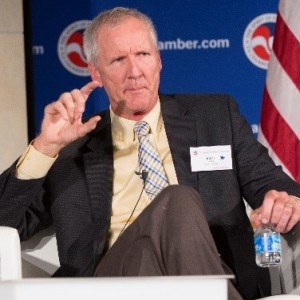
“Well, truthfully, I only got through this many pages of the Affordable Care Act.”
U.S. Chamber of Commerce Foundation Sponsored Panel Discussion on Behavioral Economics
This month I was pleased to join our HERO members Jeremy Corbett from Envolve and Jin Haag from Towers Watson for a panel discussion entitled: “Our Habits, Our Health: How Can We Leverage Behaviors to Improve Wellness.” The U.S. Chamber of Commerce Foundation makes the full program of their Annual Health Care Summit available online. Anticipating that a few of you won’t find time to sit through all seven hours of these presentations, I’d recommend you check out our modest 50 minutes starting at 44:45 minutes into this video where we posit many hours’ worth of insights.
Don’t Follow the Money
I seldom hear concerns anymore about financial return on wellness including questions about the time period needed to produce an ROI. I sometimes wonder if anyone really ever cared about ROI outside of research nerds (guilty as charged) or crabby bloggers. Conversely, it’s been clear to me for several years now that cost benefit analysis and VOI (value on investment) are now the de facto coins of the realm for our field. But since we always look for ratification of our assumptions, I was interested to see the 2015 Willis Health and Productivity Survey. Only 4% of those surveyed focused primarily on ROI. What’s more, respondents “focused on the value of a health promotion program (66%) over program cost.” And, not surprisingly, Willis showed that organizations with a focus on VOI “tended to be more satisfied with the impact of their programs.”
On a Personal Note
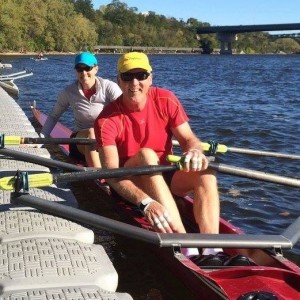 Like most working in this field, my personal fitness journey is always a work in progress. I’m up to four true loves now: Gymnastics (not a great lifetime sport), windsurfing (no longer setting speed records), X-country skiing (the perfect lifetime sport) and in the past four years: Rowing. I had a vision that I’d get competent enough to compete with (surely not against) my daughter who was a college rower. What a thrill for me to be in her stroke seat as we raced together last month in the Head of the Mississippi regatta.
Like most working in this field, my personal fitness journey is always a work in progress. I’m up to four true loves now: Gymnastics (not a great lifetime sport), windsurfing (no longer setting speed records), X-country skiing (the perfect lifetime sport) and in the past four years: Rowing. I had a vision that I’d get competent enough to compete with (surely not against) my daughter who was a college rower. What a thrill for me to be in her stroke seat as we raced together last month in the Head of the Mississippi regatta.

Comments are closed.
Awesome newsletter….can’t wait to dig in to all the links. Thanks for keeping it interesting and contemporary and honest.